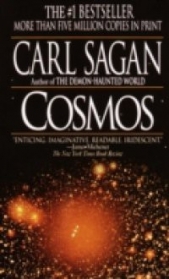Heretics of Dune

Heretics of Dune читать книгу онлайн
Frank Herbert was born in Tacoma, Washington, and educated at the University of Washington, Seattle. He worked a wide variety of jobs - including TV cameraman, radio commentator, oyster diver, jungle survival instructor, lay analyst, creative writing teacher, reporter and editor of several West Coast newspapers - before becoming a full-time writer.
In 1952, Herbert began publishing science fiction with "Looking for Something?" in Startling Stories. But his true emergence as a writer of major stature did not occur until 1965, with the publication of Dune. Dune Messiah, Children of Dune, God Emperor of Dune, Heretics of Dune, and Chapterhouse: Dune followed, completing the saga that the Chicago Tribune would call "one of the monuments of modern science fiction." Herbert is also the author of some twenty other books, including The Jesus Incident, The Dosadi Experiment, and Destination: Void. He died in 1986.
Внимание! Книга может содержать контент только для совершеннолетних. Для несовершеннолетних чтение данного контента СТРОГО ЗАПРЕЩЕНО! Если в книге присутствует наличие пропаганды ЛГБТ и другого, запрещенного контента - просьба написать на почту [email protected] для удаления материала
Teg recognized the smell as she handed him his glass. It was a quick source of energy, a pick-me-up that the Bene Gesserit seldom shared with outsiders. But Taraza no longer considered him an outsider.
His head tipped back, Teg took a long swallow of the drink, his gaze on the ornate ceiling of Taraza's small parlor. This no-ship was an old-fashioned model, built in the days when more care had been taken with decoration - heavily incised cornices, baroque figures carved in every surface.
The taste of the drink pushed his memory back into childhood, the heavy infusion of melange...
"My mother made this for me whenever I was overly strenuous," he said, looking at the glass in his hand. He already could feel the calming energy flow through his body.
Taraza took her own drink to a chairdog opposite him, a fluffy white bit of animate furniture that fitted itself to her with the ease of long familiarity. For Teg, she had provided a traditional green upholstered chair, but she saw his glance flick across the chairdog and grinned at him.
"Tastes differ, Miles." She sipped her drink and sighed. "My, that was strenuous but it was good work. There were moments when it was right on the edge of getting very nasty."
Teg found himself touched by her relaxation. No pose, no ready-made mask to set them apart and define their separate roles in the Bene Gesserit hierarchy. She was being obviously friendly and not even a hint of seductiveness. So this was just what it seemed to be - as much as that could be said about any encounter with a Reverend Mother.
With quick elation, Teg realized that he had become quite adept at reading Alma Mavis Taraza, even when she adopted one of her masks.
"Your mother taught you more than she was told to teach you," Taraza said. "A wise woman but another heretic. That's all we seem to be breeding nowadays."
"Heretic?" He was caught by resentment.
"That's a private joke in the Sisterhood," Taraza said. "We're supposed to follow a Mother Superior's orders with absolute devotion. And we do, except when we disagree."
Teg smiled and took a deep draught of his drink.
"It's odd," Taraza said, "but while we were in that tight little confrontation I found myself reacting to you as I would to one of my Sisters."
Teg felt the drink warming his stomach. It left a tingling in his nostrils. He placed the empty glass on a side table and spoke while looking at it. "My eldest daughter..."
"That would be Dimela. You should have let us have her, Miles."
"It was not my decision."
"But one word from you..." Taraza shrugged. "Well, that's past. What about Dimela?"
"She thinks I'm often too much like one of you."
"Too much?"
"She is fiercely loyal to me, Mother Superior. She doesn't really understand our relationship and -"
"What is our relationship?"
"You command and I obey."
Taraza looked at him over the lip of her glass. When she put down the glass, she said: "Yes, you've never really been a heretic, Miles. Perhaps... someday..."
He spoke quickly, wanting to divert Taraza from such ideas. "Dimela thinks the long use of melange makes many people become like you."
"Is that so? Isn't it odd, Miles, that a geriatric potion should have so many side effects?"
"I don't find that odd."
"No, of course you wouldn't." She drained her glass and put it aside. "I was addressing the way a significant life extension has produced in some people, you especially, a profound knowledge of human nature."
"We live longer and observe more," he said.
"I don't think it's quite that simple. Some people never observe anything. Life just happens to them. They get by on little more than a kind of dumb persistence, and they resist with anger and resentment anything that might lift them out of that false serenity."
"I've never been able to strike an acceptable balance sheet for the spice," he said, referring to a common Mentat process of data sorting.
Taraza nodded. Obviously, she found the same difficulty. "We of the Sisterhood tend to be more single-track than Mentats," she said. "We have routines to shake ourselves out of it but the condition persists."
"Our ancestors have had this problem for a long time," he said.
"It was different before the spice," she said.
"But they lived such short lives."
"Fifty, one hundred years; that doesn't seem very long to us, but still..."
"Did they compress more into the available time?"
"Oh, they were frenetic at times."
She was giving him observations from her Other Memories, he realized. Not the first time he had shared in such ancient lore. His mother had produced such memories on occasion, but always as a lesson. Was Taraza doing that now? Teaching him something?
"Melange is a many-handed monster," she said.
"Do you sometimes wish we had never found it?"
"The Bene Gesserit would not exist without it."
"Nor the Guild."
"But there would have been no Tyrant, no Muad'dib. The spice gives with one hand and takes with all of its others."
"Which hand contains that which we desire?" he asked. "Isn't that always the question?"
"You're an oddity, you know that, Miles? Mentats so seldom dip into philosophy. I think it's one of your strengths. You are supremely able to doubt."
He shrugged. This turn in the conversation disturbed him.
"You are not amused," she said. "But cling to your doubts anyway. Doubt is necessary to a philosopher."
"So the Zensunni assure us."
"All mystics agree on it, Miles. Never underestimate the power of doubts. Very persuasive. S'tori holds up doubt and surety in a single hand."
Really quite surprised, he asked: "Do Reverend Mothers practice Zensunni rituals?" He had never even suspected this before.
"Just once," she said. "We achieve an exalted form of s'tori, total. It involves every cell."
"The spice agony," he said.
"I was sure your mother told you. Obviously, she never explained the affinity with the Zensunni."
Teg swallowed past a lump in his throat. Fascinating! She gave him a new insight into the Bene Gesserit. This changed his entire concept, including his image of his own mother. They were removed from him into an unattainable place where he could never follow. They might think of him as a comrade on occasion but he could never enter the intimate circle. He could simulate, no more. He would never be like Muad'dib or the Tyrant.
"Prescience," Taraza said.
The word shifted his attention. She had changed the subject but not changed it.
"I was thinking about Muad'dib," he said.
"You think he predicted the future," she said.
"That is the Mentat teaching."
"I hear the doubt in your voice, Miles. Did he predict or did he create? Prescience can be deadly. The people who demand that the oracle predict for them really want to know next year's price on whalefur or something equally mundane. None of them wants an instant-by-instant prediction of his personal life."
"No surprises," Teg said.
"Exactly. If you possessed such fore-knowledge, your life would become an unutterable bore."
"You think Muad'dib life was a bore?"
"And the Tyrant's, too. We think their entire lives were devoted to trying to break out of chains they themselves created."
"But they believed..."
"Remember your philosopher's doubts, Miles. Beware! The mind of the believer stagnates. It fails to grow outward into an unlimited, infinite universe."
Teg sat silently for a moment. He sensed the fatigue that had been driven beyond his immediate awareness by the drink, sensed also the way his thoughts were roiled by the intrusion of new concepts. These were things that he had been taught would weaken a Mentat, yet he felt strengthened by them.
She is teaching me, he thought. There is a lesson here.






















